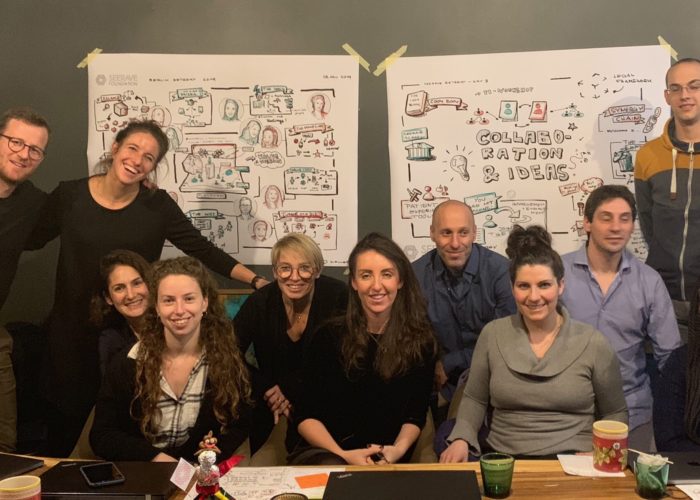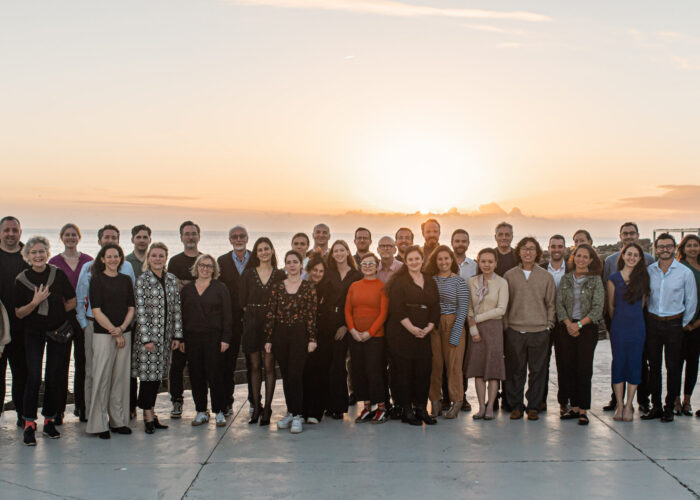Launching the Seerave Global Oncobiome Atlas

On June 16, at the Paris Immuno-Oncology Conference, the Seerave Foundation launched the Seerave Global Oncobiome Atlas – a growing catalogue of key clinical datasets at the intersection of immuno-oncology and microbiome science.
Building on a Decade of Collaboration
Seerave has long believed that global collaboration across disciplines and institutions is essential to the advancement of science. Therefore, the Oncobiome Atlas emerged out of two collaborative efforts that have shaped the field for almost a decade, the Seerave-supported PRIMM initiative and the OncoBiome EU project.
- PRIMM is a collaboration between UMCG (Netherlands) and King’s College London (UK) and followed approximately 600 patients over eight years, utilizing longitudinal stool and blood samples to generate novel metagenomic, proteomic, and glycomic signatures of treatment response. Through this work, researchers uncovered key links between diet and clinical outcomes, providing crucial insights into the relationship between the gut microbiome, nutrition and cancer treatment efficacy.
- OncoBiome is a European consortium of 17 oncology research groups across 9 European countries and Canada. The consortium produced crucial mechanistic insights into how dysbiosis impairs immune surveillance and immunotherapy response, while clarifying how microbiome modifiers like antibiotics affect treatment efficacy.
These projects yielded new evidence on the role of the microbiome in cancer, but also highlighted the need for transparent mapping of existing datasets and establishing standards for data collection and analysis on a global scale.
A Living Catalogue for Clinical Translation
In a first step, the Oncobiome Atlas is designed as a living, growing catalogue of clinical datasets at the intersection of immuno-oncology and microbiome science. Its primary goal is to provide visibility to existing, developing, and planned clinical datasets through a central reference point. Second, the Oncobiome Atlas offers concrete solutions for harmonizing data across different sites and offers access to standardized analytical pathways. This enables collaboration with the ultimate goal to generate robust evidence on how microbiome-modifiers impact cancer therapies.
First Use Case: Antibiotics and Immunotherapy
Epidemiological studies in over 46,000 patients show that antibiotic use significantly impacts survival for those treated with immune checkpoint blockade. The Atlas will enable critical evidence gaps to be filled and strengthen the data available to inform judicious antibiotic use. Key goals are to enable clinically relevant recommendations on which types of antibiotics, doses, and indications matter most for patient outcomes and to support the development of diagnostic tools and microbiome-restoring interventions.
The OncoBiome Atlas is powered by a core consortium of trusted partners and leading experts from the US, Canada, and Europe. These collaborators contribute high-value clinical data, develop robust research strategies, and create state-of-the-art analytical pipelines to strengthen the evidence base. Their combined expertise positions the Atlas to become a cornerstone resource for oncology and microbiome research communities worldwide.
Join the Initiative
The Atlas’s success depends on collective effort from the international research community and therefore acts as an open and dynamic network. We invite clinicians, researchers, and institutions to explore opportunities for collaboration based on skills, technology, data contribution, or advocacy. Further, the initiative is sharing resources including data standardization templates, analysis strategies and other outcomes publicly.
Learn more and get involved at oncobiomeatlas.org
Continue Reading


